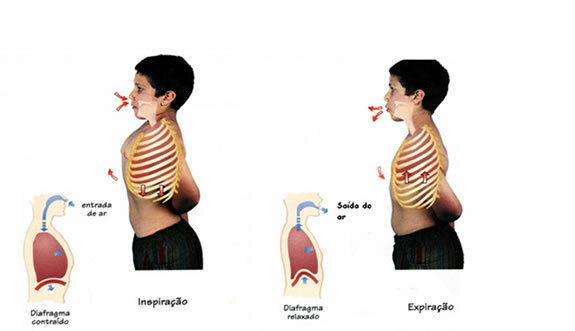In our body, lung ventilation in the breathing process depends on the action of the intercostal muscles, which connect the ribs together, and a muscle called the diaphragm. The diaphragm is located between the chest cavity and the abdominal cavity.
When we breathe in air, that is, when air enters the lungs, the diaphragm and intercostal muscles contract and the lungs fill with air. When we exhale air, that is, when air leaves the lungs, the intercostal muscles and diaphragm relax and the air leaves the lungs. Our breathing is controlled by the nervous system, which sends out nervous signals that control the movements of the intercostal muscles and the diaphragm. The nerve that carries information from the nervous system to the muscles and diaphragm is called the phrenic nerve.

The diaphragm is a muscle that participates in the inspiration and expiration movements
A hiccup is nothing more than an involuntary contraction of the diaphragm, which is usually caused by irritation of the phrenic nerve.
Experts are still not sure how phrenic nerve irritation occurs, but they believe it can happen spontaneously or by too fast ingestion of food or alcoholic beverages in excess, or by mixing a cold drink with hot food, etc.
Usually the hiccups go away naturally after some time, but many people use sympathies and others methods to stop hiccups, such as drinking cold water, drinking water with the nose covered, and scaring the person who is sobbing.
There are more serious cases in which the hiccups are caused by damage to the phrenic nerve or to some region of the brain, caused by a blow to the head, tumor or epilepsy. In these cases it is necessary to seek a doctor for a more careful evaluation.
Paula Louredo
Graduated in Biology


